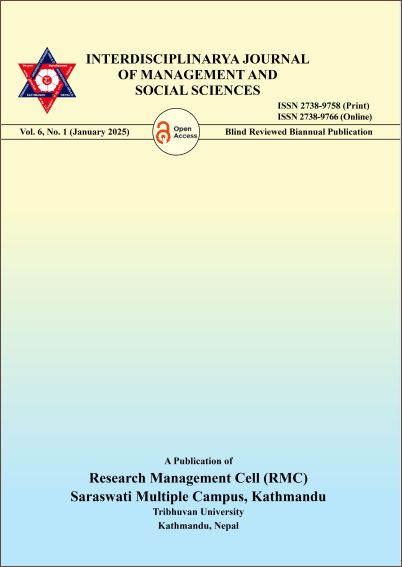Nexus between Vedic Scripture and Knowledge Creation Process in Vedic Philosophy
DOI:
https://doi.org/10.3126/ijmss.v6i1.75380Keywords:
Inference, knowledge creation, perception, scripturesAbstract
This article investigates the traces of Vedic and Vedantic claims of the source, origin, and processes involved in the creation of knowledge. This paper argues that perceptive experience, intuitive inference, and the testimony of the Vedas form the primary epistemology of transcendental knowledge. To examine this argument, it draws on the qualitative data pooled from an array of texts like the Vedic hymns, Upanishadic knowledge, the Bhagavad Gita, and the various critical comments on the Vedas as theoretical/conceptual tools. With the ascendancy of the Puranic age, mythology becomes prominent, overshadowing the Vedic epistemology of Shruti Parampara. Against this background, this article answers the problem of how the Vedanta, one of the most dominant worldviews of six systems of Eastern philosophy propounded by Shankara, examines the process of acquiring spiritual knowledge to attain the level of super-consciousness necessary to create valid knowledge. By problematizing the mythical conception of knowledge tradition as developed in the Puranic age, this study explores the steps of generating knowledge in the light of Shankar Vedanta and the Vedic tradition. Taking a lead from this cue, it concludes that consciousness, inference, and textual testimony of scriptural texts are integral components and valid processes of spiritual enlightenment.
Downloads
Downloads
Published
How to Cite
Issue
Section
License

This work is licensed under a Creative Commons Attribution-NonCommercial 4.0 International License.

